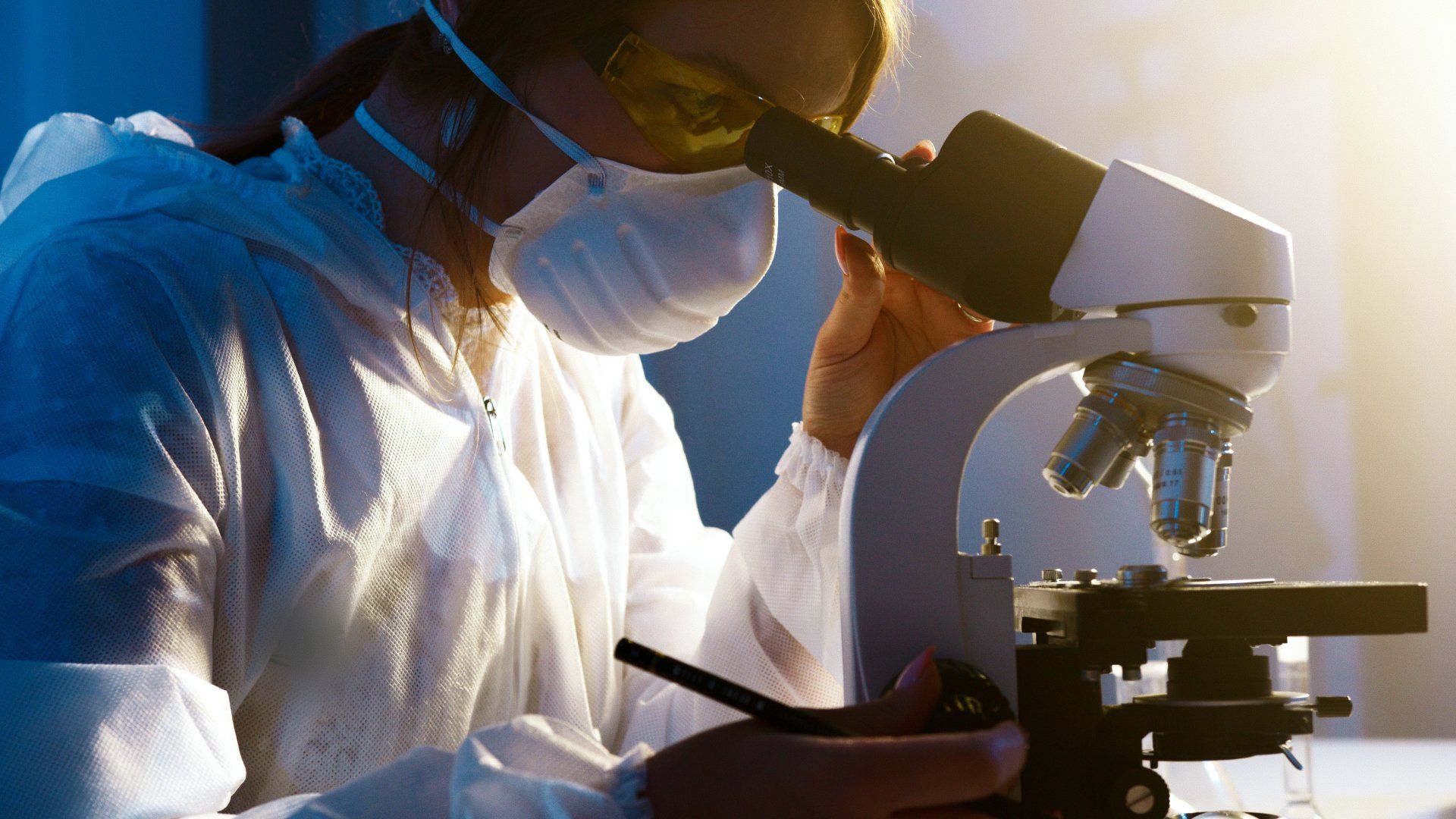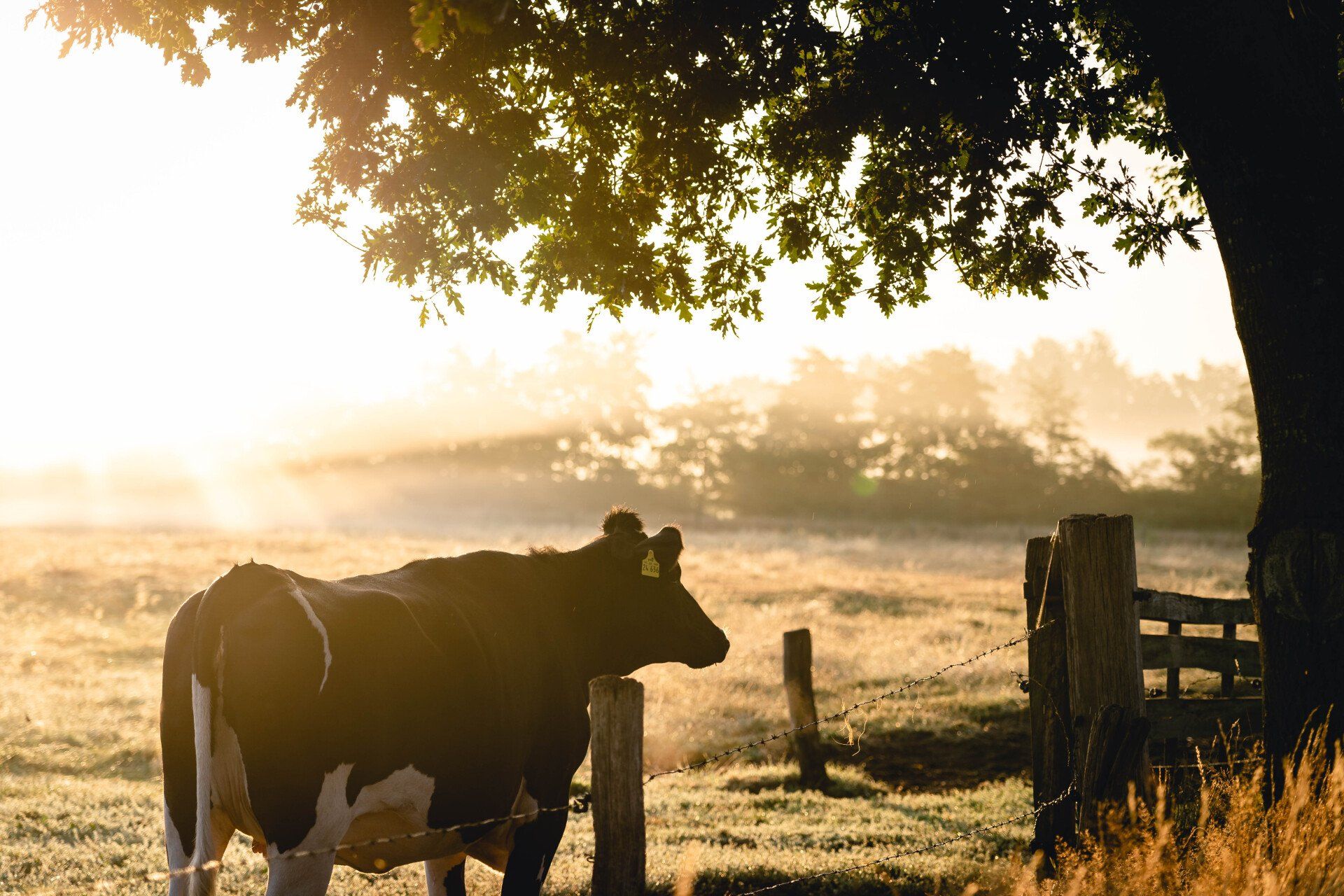Safeguarding the future through AMR research
We are AMR ready
PhD projects
Using Machine Learning and AI Approaches to Determine the Origins of PostWeaning Diarrhoea and Antimicrobial Resistance in Piglets
Open to: All
Supervisors:
Dr Linda Oyama, School of Biological Sciences, Queen's University Belfast
Dr Mingjun Zhong, University of Aberdeen
Dr Sadie Gouglas, AB Neo
Prof Ilias Kyriazakis Queen's University Belfast
Summary:
Scientific Background: Post-weaning diarrhoea (PWD) is a critical health concern in piglets, affecting their wellbeing and productivity. Additionally, antimicrobial resistance (AMR) in piglets presents a significant challenge, exacerbated by factors including biological, environmental, and management practices and may relate to the prevalence of AMR in humans. The recent ban on zinc oxide (ZnO) supplementation previously used to prevent PWD due to environmental and AMR issues, underscores the need to explore its impact on PWD aetiology and incidence, and AMR dynamics. This project aims to understand how ZnO affects the gut microbiome and contributes to the development of AMR in piglets, by using novel machine learning and AI approaches.
Research Methodology: The student will use data from a controlled pig trial including longitudinal time-series microbiome datasets and pig health metrics to profile gut microbiota and identify functional changes due to ZnO. They will employ a combination of linear strategies, probability-based Bayesian techniques, and machine learning approaches to evaluate increasingly complex relationships in relation to microbiome and AMR outcomes. They will focus on cutting-edge machine learning techniques and novel Bayesian analyses to fully leverage available datasets and discern complex relationships between ZnO presence or absence and PWD which may be otherwise unreachable.
Training and Opportunities: The successful student will gain comprehensive training in AI applications, microbiome-AMR research and analysis within the agri-food sector. Skills developed will include advanced AI and machine learning methodologies, statistical modelling and data analytics, phenotypic assays, microbiome sequencing techniques. Collaborating with pig chain actors and agri-food practitioners, the student will co-create solutions to enhance piglet welfare and farm productivity. This project not only aims to advance scientific understanding but also to develop AI-driven strategies to improve piglet health and mitigate AMR, contributing to animal welfare and agricultural sustainability.
Application Deadline: 27 October, 2024
Start Date: 1 October 2025
Duration: 4 years Fully Funded
How to apply: See details here
Funding Notes
SUSTAIN is a collaboration between the Universities of Lincoln, Aberdeen, Queen’s Belfast and Strathclyde, and focuses on the application of Artificial Intelligence (AI) to sustainable agri-food. Funded by UKRI (with some contribution from the industry partner), proposals aim to engage industry partners in a PhD studentship focused on their specific business challenges, as well as interests of the wider intelligent sustainable agri-food community. The SUSTAIN Centre for Doctoral Training (CDT) empowers the next generation of AI scientists to invent, develop and deploy technologies, co-created with growers and agri-food practitioners. SUSTAIN facilitates meaningful partnerships between academics and industry, investing in stakeholder-driven innovation.
Full eligibility criteria: View Website and here



Apply to join the Team
AMR in Microbiomes and Implications for One Health
Innovative solutions for tackling AMR
Microbiome-based solutions for AMR
PhD projects
DEVELOPMENT OF A VAGINAL DRUG DELIVERY DEVICE FOR TREATMENT OF BACTERIAL VAGINOSIS AND ITS EVALUATION IN A VAGINAL EPITHELIUM MODEL
Open to: Self Funded Students Only
Supervisors:
Karl Malcolm, School of Pharmacy, Queen's University Belfast
Natividad Gomez-Roman, Institute of Pharmacy and Biomedical Sciences, University of Strathclyde
Linda Oyama, School of Biological Sciences, Queen's University Belfast
Summary:
Bacterial vaginosis (BV) is a common dysbiosis of the human vaginal microbiota in which the normally dominant Lactobacillus species are replaced by various facultative anaerobic bacteria. Metronidazole (MET) administered orally or vaginally is first-line therapy for BV. However, current treatments are often ineffective due to poor user adherence and high incidence of recurrent infections. A more holistic approach is required for more effective treatment of BV.
This project aims to develop a vaginal ring device (similar to products currently marketed for estrogen replacement therapy, hormonal contraception and HIV prevention) offering simultaneous sustained release of MET, one or more strains of Lactobacillus, lactoferrin and lactide. The efficacy of the vaginal ring designs will be evaluated using in vitro vaginal epithelium 3D models and ex vivo rodent vaginal epithelium models. This is an in vitro, laboratory-based project. However, with further funding, we plan to advance the concept to animal and clinical testing.
The successful applicant will benefit from a highly multidisciplinary supervisory team, with extensive expertise across many aspects of this unique area of collaborative research. The student will receive training in established research teams and develop key skills in many aspects of drug product development and testing and microbiology
Application Deadline: 9 February, 2024
Start Date: 1 October 2024
Duration: 4 years
How to apply: See details here
Funding Notes
The NWB DTP is a new BBSRC-funded Doctoral Training Partnership (DTP) delivered between the Universities of Glasgow, Lancaster, Queen’s Belfast and Strathclyde. Each partner has proven expertise in research that addresses global challenges and provides access to outstanding research facilities and infrastructure. The programme is further enriched through our associated partners iBioIC, the Moredun Research Institute and the James Hutton Institute, expanding the collaborative options for joint PhD projects, industrial connectivity and entrepreneurship and placements.
Full eligibility criteria: View Website



Publications
- Lawther, K., Santos, F. G., Oyama, L. B., & Huws, S. A. (2024). - Invited Review - Chemical signalling within the rumen microbiome. Animal bioscience, 37(2), 337–345. https://doi.org/10.5713/ab.23.0374
- Mulkern, A.J., Oyama, LB., Cookson, A.R. et al. Microbiome-derived antimicrobial peptides offer therapeutic solutions for the treatment of Pseudomonas aeruginosainfections. npj Biofilms Microbiomes 8, 70 (2022). https://doi.org/10.1038/s41522-022-00332-w
- Oyama, L.B., Olleik, H., Teixeira, A.C.N. et al. In silico identification of two peptides with antibacterial activity against multidrug-resistant Staphylococcus aureus. npj Biofilms Microbiomes 8, 58 (2022).
https://doi.org/10.1038/s41522-022-00320-0
- Lawther K, Santos FG, Oyama LB, Rubino F, Morrison S, Creevey CJ, McGrath JW and Huws SA (2022) Resistome Analysis of Global Livestock and Soil Microbiomes. Front. Microbiol. 13:897905. doi: 10.3389/fmicb.2022.897905
- de Oliveira IMF, Godoy-Santos F, Oyama LB, Moreira SM, Dias RG, Huws SA, Creevey CJ, Mantovani HC. (2022) Whole-Genome Sequencing and Comparative Genomic Analysis of Antimicrobial Producing Streptococcus lutetiensis from the rumen. Microorganisms. 10(3):551. doi: 10.3390/microorganisms10030551.
- Huws SA, Edwards JE, Lin W, Rubino F, Alston M, Swarbreck D, Caim S, Rees Stevens P, Pachebat J, Won W-Y, Oyama LB, Creevey CJ, Kingston-Smith AH. (2021) Microbiomes attached to fresh perennial ryegrass- are temporally resilient and adapt to changing ecological niches. Microbiome. 9:143 https://doi.org/10.1186/s40168-021-01087-w
- Won MY, Oyama LB, Creevey CJ, Huws SA (2020). Can rumen bacteria communicate to each other? Microbiome. 21;8(1):23. doi: 10.1186/s40168-020-00796-y.
- Sabino YMV, Santana MF, Oyama LB, Santos FG, Moreira AJS, Huws SA, Mantovani HC (2019). Characterization of antibiotic resistance genes in the species of the rumen microbiota. Nature Communications 10(1): 5252. doi: 10.1038/s41467-019-13118-0.
- Huws, SA., Creevey, C., Oyama, LB., Mizrahi, I., Denman, SE et al (2018). Addressing global ruminant agricultural challenges through understanding the rumen microbiome: Past, present and future. Frontiers in Microbiolology. doi: 10.3389/fmicb.2018.02161.
- Oyama LB, Girdwood SE, Cookson A, Fernandez-Fuentes N, Privé F, Wilkinson T, Lundy F, Mansour S, Hancock, RE, Golyshin P, Golyshina O, Mikut R, Hilpert K, Edwards JE, Creevey C, Huws SA. (2017) The rumen microbiome: An untapped goldmine for novel antimicrobial discovery. Nature Publishing Journal Biofilms and Microbiomes 3:33. Doi:10.1038/s41522-017-0042-1.
- Oyama LB, Crochet J-A, Edwards JE, et al (2017) Buwchitin: A ruminal peptide with antimicrobial potential against Enterococcus faecalis. Frontiers in Chemistry. 5:51. doi: 10.3389/fchem.2017.00051
- Wilkinson T Cowan AA, Vallin HE, Onime L, Oyama LB, Cameron SJ, Gonot C, Moorby J, Waddams K, Theobald V, Leemans D, Bowra S, Nixey C, Huws SA. (2017) Characterisation of the turkey microbiome along the gastrointestinal tract of growing turkeys. Frontiers in Microbiology. 2;8:1089. doi: 10.3389/fmicb.2017.01089.
- Randall CP, Oyama LB, Bostock JM, Chopra I, O'Neill AJ. The silver cation (Ag+): antistaphylococcal activity, mode of action and resistance studies. Journal of Antimicrobial Chemotherapy. 2013 Jan;68(1):131-8. doi: 10.1093/jac/dks372. Epub 2012 Sep 25. PMID: 23011288.

